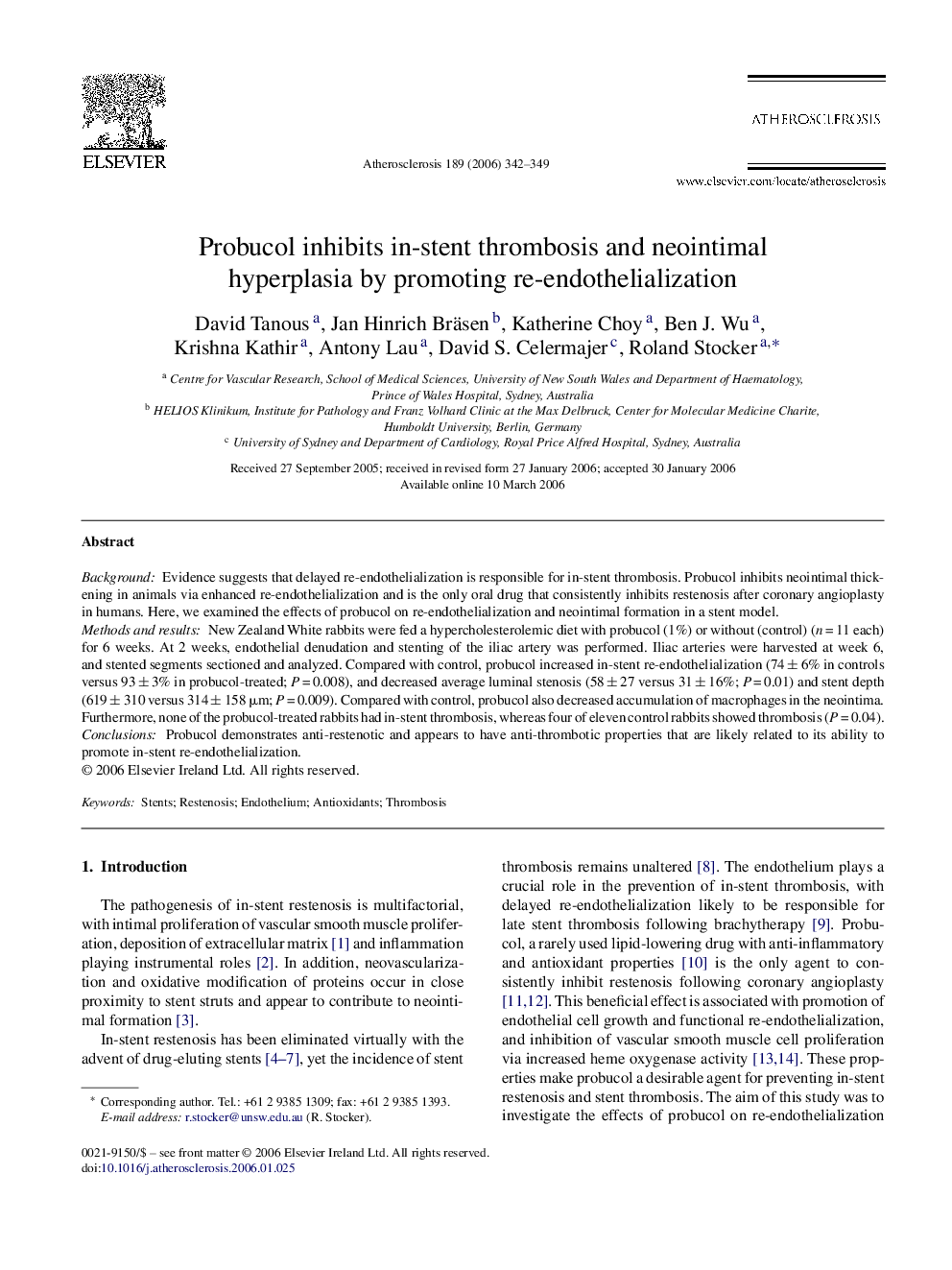| کد مقاله | کد نشریه | سال انتشار | مقاله انگلیسی | نسخه تمام متن |
|---|---|---|---|---|
| 2894996 | 1172447 | 2006 | 8 صفحه PDF | دانلود رایگان |

BackgroundEvidence suggests that delayed re-endothelialization is responsible for in-stent thrombosis. Probucol inhibits neointimal thickening in animals via enhanced re-endothelialization and is the only oral drug that consistently inhibits restenosis after coronary angioplasty in humans. Here, we examined the effects of probucol on re-endothelialization and neointimal formation in a stent model.Methods and resultsNew Zealand White rabbits were fed a hypercholesterolemic diet with probucol (1%) or without (control) (n = 11 each) for 6 weeks. At 2 weeks, endothelial denudation and stenting of the iliac artery was performed. Iliac arteries were harvested at week 6, and stented segments sectioned and analyzed. Compared with control, probucol increased in-stent re-endothelialization (74 ± 6% in controls versus 93 ± 3% in probucol-treated; P = 0.008), and decreased average luminal stenosis (58 ± 27 versus 31 ± 16%; P = 0.01) and stent depth (619 ± 310 versus 314 ± 158 μm; P = 0.009). Compared with control, probucol also decreased accumulation of macrophages in the neointima. Furthermore, none of the probucol-treated rabbits had in-stent thrombosis, whereas four of eleven control rabbits showed thrombosis (P = 0.04).ConclusionsProbucol demonstrates anti-restenotic and appears to have anti-thrombotic properties that are likely related to its ability to promote in-stent re-endothelialization.
Journal: Atherosclerosis - Volume 189, Issue 2, December 2006, Pages 342–349